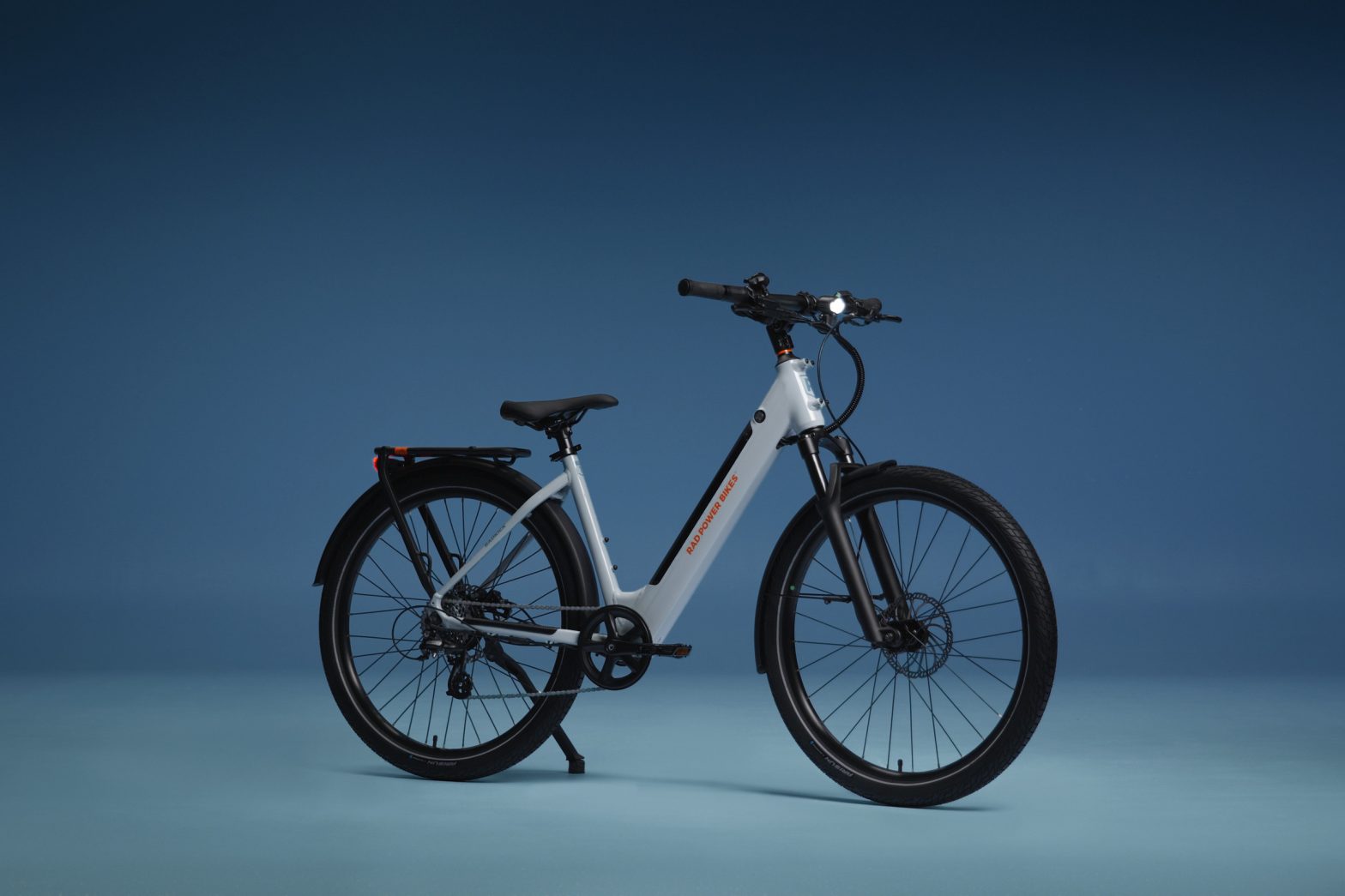/
Starting at $1,199, the new lightweight, low-step e-bike is targeted at urban commuters on a budget.
Share this story
:format(webp)/cdn.vox-cdn.com/uploads/chorus_asset/file/25562898/547376_Footagepull.00_04_54_01.Still012_035726_original_1721944722.png)
Rad Power Bikes announced a new more affordable, lighter-weight e-bike for urban commuters who just want a cheap, simple way to get around. Dubbed the RadKick, the new bike starts at $1,199, making it the Seattle-based company’s most affordable model yet.
And for those desiring fewer grease stains on their pant cuffs, the RadKick also comes with an optional belt drive in place of a traditional bike chain, which is a first for the company.
The low-step frame, integrated battery pack, and space for a plethora of front- and rear-rack optional add-ons could make this the ideal entry-level bike for anyone curious about electric bikes but perhaps turned off by high prices or the idea of lugging an extremely heavy bike up and down stairs.
In a statement, Rad Power Bikes CEO Phil Molyneux said the RadKick was designed to fill a gap in the company’s lineup, which was identified with the help of customer feedback. That “missing piece,” Molyneux says, was for an e-bike that was lightweight but also affordable to attract more price-conscious consumers.
The RadKick clocks in at a respectable 55lbs, which is about as light as you can get without sacrificing too much power and range — both of which are extremely important to Rad’s US customers.
The RadKick comes in two trims: a seven-speed with a traditional bike chain and a single-speed with a belt drive. There are advantages and disadvantages to both. The seven-speed is ideal for anyone who wants a little help when tackling big hills or prefers a more familiar riding experience, while the belt drive offers a smoother ride and requires less maintenance.
The addition of torque sensors, which regulate the motor based on how hard you push the pedals, could also help sweeten the deal for those customers interested in the belt drive version. But you’ll have to pay a little extra, to the tune of $1,399.
Just like the rest of Rad’s lineup, the RadKick is a Class 2 e-bike, with a throttle-assisted top speed of 20mph. The fully integrated 36V/10Ah battery supplies enough juice for up to 35 miles of range, which isn’t as far as some of Rad’s bigger-battery-sporting bikes, but should be enough for most commuters.
But the battery also features the company’s new thermal-resistant epoxy resin and complies with UL 2849 and 2271 standards. (Rad released the new batteries earlier this year as part of an effort to push the entire e-bike industry toward safer, more fire-resistant materials.)
There’s a lot more to like about the RadKick, including the 500W rear-hub motor, an LCD display with USB-C charging port, hydraulic disc brakes, front and rear fenders, a rear rack with a bamboo shelf, front suspension, and an adjustable stem to accommodate riders as short as five feet, two inches or as tall as six feet, one inch.
It’s great to see Rad continue to innovate on the product sign, even as market conditions get tougher and the business contracts. The post-pandemic bike boom appears to be waning in some respects, and venture-backed bike companies are feeling the pinch. Rad has gone through several rounds of layoffs — the most recent one was last week — and was forced to pull out of the European market to focus exclusively on the US.
And e-bikes are about to get more expensive as exclusions from tariffs on Chinese imports in the US expire, which could cause even more belt-tightening among the major manufacturers. Amid all of this, it’s great to see companies like Rad are still committed to keeping their products affordable and turning more people on to the climate-change-fighting power of electric bikes.
